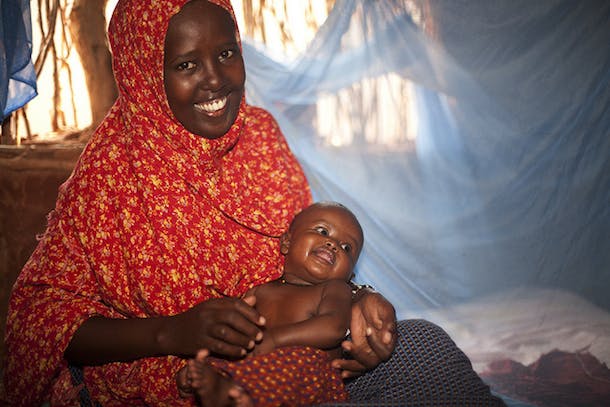
Photo credit: UNHCR/S. Hoibak
Editor’s Note: This post is part of a special series in honor of International Women’s Day. Over the coming days, the United Nations Foundation blog will feature posts on the world we picture for girls and women in 2030 and the issues we need to address to advance women’s equality and empowerment.
By 2030 a new generation of mothers will exist in many countries where malaria is currently transmitted. In these countries, this will be the first generation of mothers who do not have to worry that malaria will compromise their pregnancy. They will be the first generation of mothers who do not risk losing a child to this deadly disease. Their daughters and sons will have the good fortune of not remembering a time when malaria regularly took the lives of children like them.
The tremendous success of global efforts to fight malaria over the past 15 years have set the stage for many countries to eliminate this disease from their borders. The UN Millennium Development Goals (MDG) helped the world recognize the need to tackle malaria, and as a global action the malaria mortality rate has been cut by nearly half since 2000. Emboldened by this success, the fight against malaria is now in the process of setting more ambitious goals to move us closer to ending this disease.
The World Health Organization is poised to approve the 2016-2030 Global Technical Strategy for malaria this May. This strategy sets goals for reducing malaria cases and deaths by 90% by 2030 and eliminating malaria in 35 countries. In order to achieve these ambitious goals, substantial political commitment and financing for both programmatic interventions and research and development of new tools are needed.
Securing such long-term dedication to this cause will be challenging. As we see significant reductions in malaria as we approach elimination, it will be tempting to deprioritize this issue. This has happened before and we know the results well. If it is not completely eliminated, malaria can resurge as a major public health threat over even one rainy season.
As we renew our commitment to malaria this year, we must acknowledge the challenging road ahead. We must make a pledge to the mothers of tomorrow that we will continue fighting for their malaria-free future.



 View All Blog Posts
View All Blog Posts